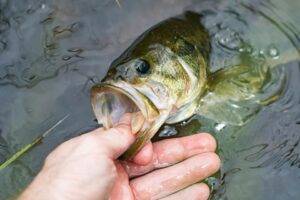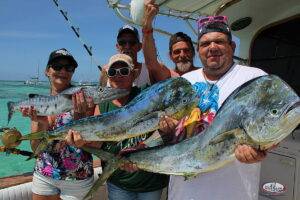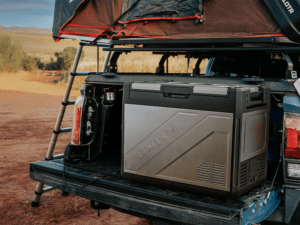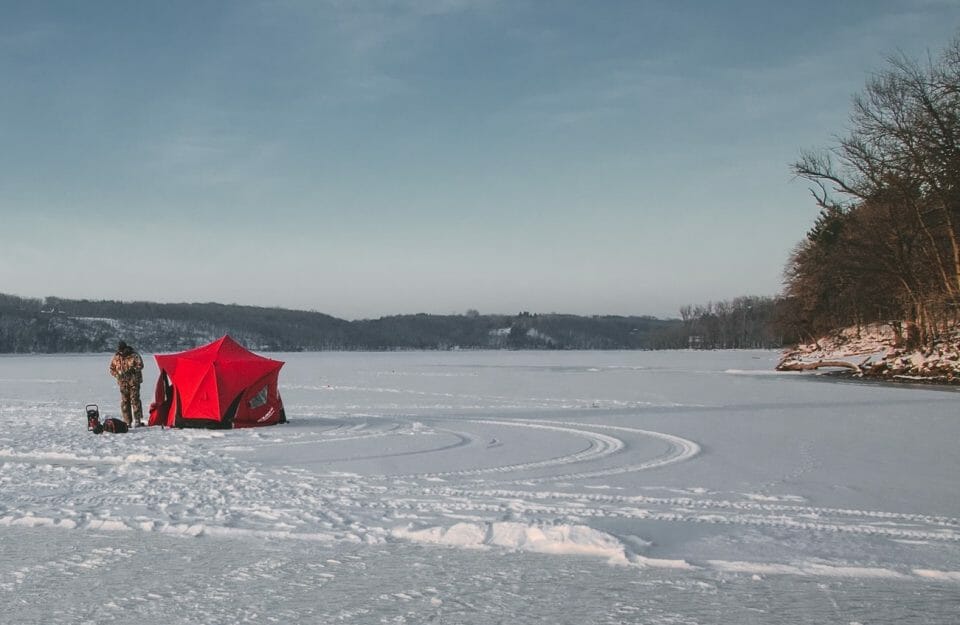
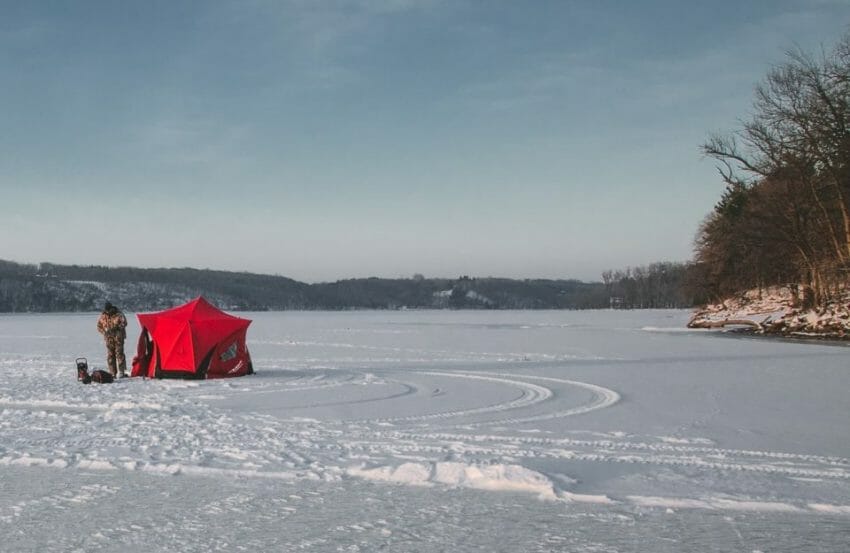
If you’re from the northern or eastern parts of America, you will know that ice fishing is a time-honored tradition. Fishing in the coldest of temperatures is not for the faint of heart, it takes determination and preparedness. If you get that combination right though, you are in for a good time.
Ice fishing is not complicated but there are a few principles for success. The most important aspect to consider before you venture out onto the ice is to always put your safety first. Never take chances when it comes to your safety, the risks are too high.
The easiest way to ensure your ice fishing adventure is a great one is to follow these five unmissable tips below:
1. Keep Your Extremities Warm
Beat the ice fishing freeze by keeping your extremities warm during your winter camping trip. Nothing ruins a good time on the ice like numb fingers. Luckily there are quite a few ways to counter the below-freezing temperatures.
Make sure that you eat before you go, a warm meal will help to keep your body temperature raised and it will provide the fuel your body needs to sustain that warmth. Keep your core warm because if your core is warm then your extremities will be warm too.
2. Stay Hydrated
Plenty of ice fishermen drink alcohol because they think it will help to keep them warm on the ice. Alcohol might keep your core warm, but it also lessens your circulation. If your circulation drops then you will be at risk of getting frostbite.
Drinking water helps to keep your body warm because water keeps your blood pumping and keeps your circulation going.
3. Invest In Good Gear
As with most sports and hobbies, the quality of the gear you buy can make all the difference in the world. Good quality ice auger blades will dig down into the ice faster than you can believe. Get yourself some good gear, it might cost you more initially, but it will be well worth it in the long run.
Ice fishing is more popular than ever so you shouldn’t struggle to find quality equipment. The more expensive gear will make your life easier and includes things like pop-up shelters and gas-powered augers.
You can get more affordable gear and fish like your grandfather did though, there is no shame in that.
4. Cover Your Head
When you’re out on the ice, especially on a very cold day, you’ll notice that you lose heat incredibly quickly if your head isn’t covered. This is because humans lose 90% of our heat through the tops of our heads.
This means that even if you layer your clothing and wear coveralls with a fantastic insulation, none of that will matter if your head is exposed to the elements. Get yourself a warm woolly hat, or even just a cap – as long as your head is covered you should be able to keep your internal warmth for longer.
5. Pack Your Picks
No ice fisherman wants to fall into the water, ever. Unfortunately, accidents do happen, so you need to prepare for the worst but hope for the best. An ice safety pick, otherwise known as a bear claw (not the baked kind), will give you the best chance of hauling yourself out if you do fall in.
Ice picks are necessary for gaining traction along the ice. When you do pull yourself out of the water, you can then pull yourself along the ice until you get to a spot that is safe to stand on. If the ice is too thin when you stand up, you risk falling through again.
To End
Ice fishing can be the next best thing you do with your life. If you do it safely, then you will fall in love with it. All of the great things in life come with risks, but that doesn’t make them less worthwhile.
If you can, find an experienced friend to take you with them on their next trip. Borrow some of their gear to see if you enjoy ice fishing, then it won’t cost you anything at first. If you find yourself enjoying your time out there, you can slowly build up your collection of gear.
Stay vigilant on the ice; the thickness of the ice can change quickly, so keep an eye on it. Before you leave for your trip, let a friend or relative know your plans for the day. When you arrive on the ice, send a location pin to them – that way if something bad happens, they’ll know where you were last.

